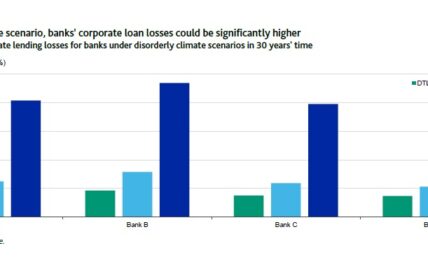Billionaire activist investor Carl Icahn issued a letter to McDonald’s shareholders calling for support on his efforts to improve animal welfare practices at the company and announced the filing of a proxy statement nominating two candidates for election to the company’s board.
The letter also calls out Wall Street for its “hypocrisy” on ESG, saying that “a large number of Wall Street firms and their bankers and lawyers appear to be capitalizing on ESG to drive profits without doing nearly enough to support tangible societal progress.”
Icahn’s letter focuses specifically on the issue of McDonald’s use of sourcing pork from suppliers that use gestation stalls, calling the practice an “egregious form of animal abuse,” in which “sows, who have multiple litters of piglets each year, are confined in gestation crates during each pregnancy for approximately four to six weeks, 24 hours a day, seven days a week. They will spend these weeks immobilized in tiny crates, not much bigger than their bodies, where they can’t even turn around.”
McDonald’s had a long-standing commitment, announced in 2022, to phase out the use of gestation crates in its supply chain by 2022, although the company recently reported that issues including COVID-19 and the global outbreak of African Swine Fever pushed back this target by 2 years, and that it now expects to reach 85% – 90% of the target by the end of 2022, and to hit its goal by the end of 2024.
In his letter, Icahn dismisses the company’s rationalization for the delays, writing:
“In what I perceive to be poor excuses for nonperformance, McDonald’s has blamed “industry-wide challenges for farmers and producers, such as the COVID-19 pandemic and global swine disease outbreaks” for its failure to make good on its commitment to end gestation crate use. I believe, however, that McDonald’s should have been prioritizing and advancing on this issue well before these challenges arose instead of blaming recent headwinds as the reason the Company has failed to honor its important pledge from over a decade ago. Why is McDonald’s now patronizing us with semantics and attempts to defend the indefensible?”
Icahn also calls out other ESG-related issues at the company, notably the wage gap between executives and employees, noting that in 2021 “total Chief Executive Officer compensation was $20,028,132, an astounding 2,251x the average employee’s total compensation of $8,897. The Board is clearly condoning multiple forms of injustice and I believe the majority of the public would agree.”
Icahn’s nominees for the McDonald’s board include Green Century Capital Management President Leslie Samuelrich and Maisie Ganzler, Chief Strategy & Brand Officer of Bon Appétit Management Company. According to the letter, “once shareholders examine Mses. Samuelrich and Ganzler’s respective backgrounds, I hope it becomes abundantly clear that our nominees have what it takes to hold their fellow Board members and the Company’s management accountable and help McDonald’s establish realistic targets, verify progress and meet stated ESG commitments.”
The letter also calls on the company to pursue a series of actions, including committing to the elimination of gestation crates in its supply chain by the end of 2023, extend its gestation crate elimination goal beyond the U.S. to its global supply chain by 2024, and to adhere to SASB disclosure standards on the Meat, Dairy and Poultry Industry, which request disclosure on the “percentage of pork produced without the use of gestation crates,” among other actions.
McDonald’s issued a statement in response to Icahn’s letter, noting that “McDonald’s cares about the health and welfare of the animals in our supply chain and has long led the industry with our animal welfare commitments,” and that its commitment to phase out gestation crates “was shaped with input from industry experts and the American Association of Swine Veterinarians. It led to a step-change in the industry, with a commonly adopted approach to group housing.”
The statement also critiques Icahn’s suggested actions, saying that they are based on a obscure definition “conjured up by the Humane Society of the United States (HSUS),” that would significantly increase costs, and “require at least 300-400 times the animals housed today in “crate-free” systems to keep our supply chain running.” McDonald’s statement also adds that Icahn’s letter makes clear that his board nominations relate particularly to a very narrow issue, and replacing current directors would “remove valuable directors with strong track records from the McDonald’s Board and replace them with single-platform nominees.”
Icahn’s letter also calls for a change in the “ESG status quo on Wall Street,” calling on asset managers “who collectively possess immense influence due to their trillions of dollars in capital,” to “stop subjectively selecting which ESG principles are important.”
Icahn writes:
“The reality is that if the ESG movement is to be more than a marketing concept and fundraising tool, the massive asset managers who are among McDonald’s’ largest owners must back up their words with actions. While many ESG policies cover a host of sustainability and supply chain issues, it is unacceptable and irresponsible that major asset managers have put such little emphasis on animal welfare in their stewardship and voting guidelines.”
Click here to view Carl Icahn’s letter and McDonald’s statement.
The post Carl Icahn Urges Investors to Support Proxy Battle Against McDonald’s on Animal Welfare, Calls Out Wall Street Hypocrisy on ESG appeared first on ESG Today.



